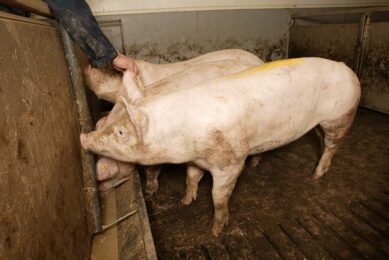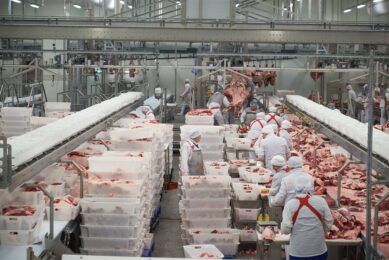Canadian hog farmers at rock bottom

Farmers in the Canadian provinces of Nova Scotia and Prince Edward Island are now earning less than at any time in the last four decades—so little in fact that rural communities in both provinces are at serious risk.
That’s the conclusion of a new report on farm economic viability released today by GPI Atlantic, the Nova Scotia based non-profit research group.
Slump in prices
Herman Berfelo and his family have tended to thousands of hogs on their sprawling farm in central Nova Scotia for more than five decades. But the veteran farmer is weighing his future in the business as his debt grows and the price he gets for his pork products slumps because of cheap imports – factors a new study suggests are threatening the viability of farming in the region.
“It could very well be the last generation,” Berfelo, 68, said from his farm, where they produce sausages, ham, bacon and other pork products.”If you look up and down in a lot of areas you see a lot of abandoned farms that are perfectly good farmland…It’s just becoming more and more difficult.”
The findings in a recent report indicated that the biggest problem is that prices paid to producers for their products are not keeping pace with farm expenses, particularly the cost of fuel and wages.
Net farm income has dropped by more than 90 per cent in Nova Scotia and 92 per cent on the Island since 1971. Total farm debt increased by 146 per cent in Nova Scotia, and by 445 per cent in P.E.I. between 1971 and 2006. Nova Scotia represents only two per cent of national agricultural production, but is valued at $450 million annually while P.E.I.’s industry is worth about $360 million.
Leaving the industry
William Versteeg of the Nova Scotia Federation of Agriculture said he sees people leaving the industry on a weekly basis and blames the provincial government for failing to produce a strategy to deal with the crisis.
Experts say the red meat sectors are in particular distress, with local operations now producing only 15 per cent of the pork consumed in the province, compared with about 60 per cent five years ago. Consumers should demand more local food from their grocers, giving farmers an edge over overseas producers, is one solution that has been suggested.
Subscribe here to the Pig Progress newsletter
Slump in prices
Herman Berfelo and his family have tended to thousands of hogs on their sprawling farm in central Nova Scotia for more than five decades. But the veteran farmer is weighing his future in the business as his debt grows and the price he gets for his pork products slumps because of cheap imports – factors a new study suggests are threatening the viability of farming in the region.
“It could very well be the last generation,” Berfelo, 68, said from his farm, where they produce sausages, ham, bacon and other pork products.”If you look up and down in a lot of areas you see a lot of abandoned farms that are perfectly good farmland…It’s just becoming more and more difficult.”
The findings in a recent report indicated that the biggest problem is that prices paid to producers for their products are not keeping pace with farm expenses, particularly the cost of fuel and wages.
Net farm income has dropped by more than 90 per cent in Nova Scotia and 92 per cent on the Island since 1971. Total farm debt increased by 146 per cent in Nova Scotia, and by 445 per cent in P.E.I. between 1971 and 2006. Nova Scotia represents only two per cent of national agricultural production, but is valued at $450 million annually while P.E.I.’s industry is worth about $360 million.
Leaving the industry
William Versteeg of the Nova Scotia Federation of Agriculture said he sees people leaving the industry on a weekly basis and blames the provincial government for failing to produce a strategy to deal with the crisis.
Experts say the red meat sectors are in particular distress, with local operations now producing only 15 per cent of the pork consumed in the province, compared with about 60 per cent five years ago. Consumers should demand more local food from their grocers, giving farmers an edge over overseas producers, is one solution that has been suggested.
Subscribe here to the Pig Progress newsletter
Join 18,000+ subscribers
Subscribe to our newsletter to stay updated about all the need-to-know content in the pigsector, three times a week. Beheer
Beheer










 WP Admin
WP Admin  Bewerk bericht
Bewerk bericht